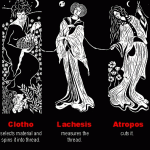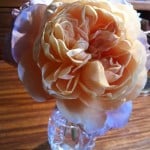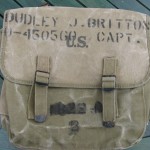 This was my father’s rucksack in WWII. It was found in a barn a couple of years ago, in France. I have no idea how it got there, other than Daddy fought in France. Nor what was in it when it was discovered. If anything ~
This was my father’s rucksack in WWII. It was found in a barn a couple of years ago, in France. I have no idea how it got there, other than Daddy fought in France. Nor what was in it when it was discovered. If anything ~
When we were notified it had come to light, my sister (the one who was a lifer in the Army, like Daddy) okayed having it put in a nearby museum, if the museum wanted it. Which is wonderful — I’m a keen museum lover :).
But I wonder what it contained. Had Daddy scribbled some note on a scrap of paper, as he often did? Was there a dog-eared book of Kipling’s poetry (his favourite, because Kipling knew about battle)? Or some other treasure of no value to anyone but his four daughters…?
Rucksacks are such useful things. In a recent reading, the wonderful poet Carolyn Forché said that the small, daily — even hourly — choices we make are what really shape and form us. The rucksack of your æsthetic, she called these choices. As if my ideas of beauty, 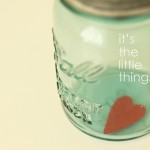 of art, of what is lovely and necessary, are not formed in any large moment or epiphany, but instead in the thousand things I decide to do — or not do — daily. Forché was responding to a question about what and who to read, and how to learn to write, but her statement rang a loud bell for me. Yes, I thought — everything counts.
of art, of what is lovely and necessary, are not formed in any large moment or epiphany, but instead in the thousand things I decide to do — or not do — daily. Forché was responding to a question about what and who to read, and how to learn to write, but her statement rang a loud bell for me. Yes, I thought — everything counts.
In other words, missing the last plane to Saudi Arabia before the Gulf War is no more important than my ongoing decisions to stay home w/ my two sons while we lived those 8 years in Saudi Arabia. The day after day time with them, w/ my husband, learning to cook and make tea and working on writing: these were every bit as formative.
And as much as post-graduate work, Forché argues, my choices in what I read daily comprise who we become. My æsthetic is not only the Pound I read in classes, but the Goudge I read overseas, the Persig I taught in class, the British cookbook I pore over at breakfast.
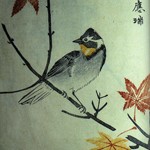 I love this. It dovetails nicely w/ my Buddhist sensibility :). That lovely word ‘practice’ is part of what drew me in to Buddhism in the beginning. The idea that you don’t have to be perfect — you can learn beginner’s heart through practice. Through writing a blog. Through the hourly choices of a hundred hundred days. Through wondering what your father carried in his own rucksack. And what that might have said about his æsthetic…
I love this. It dovetails nicely w/ my Buddhist sensibility :). That lovely word ‘practice’ is part of what drew me in to Buddhism in the beginning. The idea that you don’t have to be perfect — you can learn beginner’s heart through practice. Through writing a blog. Through the hourly choices of a hundred hundred days. Through wondering what your father carried in his own rucksack. And what that might have said about his æsthetic…
